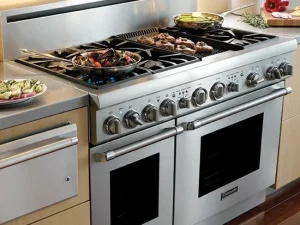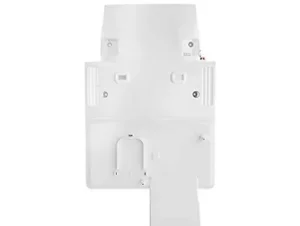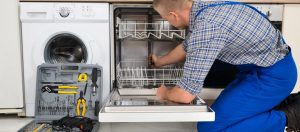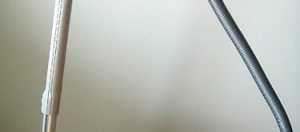
There are a myriad different makes and models of electric cookers in daily use across the UK – and the world. Basically they all work the same way and have the same essential components, with an oven, hob, and sometimes integrated warmers and extractor hoods.
The latest electric cookers – just like cars – are “smart” having electronic features and even on-board computers.
No matter what type of electric cooker you have it is likely that at some point the appliance will develop a fault, and you’ll need help to get cooking again.
We thought it would be useful to list some of the more common problems and faults you might experience with your electric cooker:
No Power
If your cooker won’t operate at all, with nothing heating up or indicator lights showing when you switch it on, check the fuse-box. A fuse might have blown or the switch may have tripped for some reason, or there is some other reason why the power supply has been interrupted. If your cooker has a digital timer this could also be the cause of the problem – the timer may be faulty or need resetting. Whatever the case it’s not wise to tamper with the electricity supply. If you’re satisfied that there is a power supply issue call in a professional to identify and fix the problem.
Oven fails to heat
When the cooker turns on, but the oven stays cold, there could be any number of reasons. Most commonly it is a case of a faulty temperature sensor or thermostat, which will need replacing. Another cause could be a malfunctioning heating element, either at the top (the broil element), bottom (the bake element) or both (often caused by corrosion in older ovens) or an issue with the wiring. Whatever the case, it takes a trained professional to work safely and effectively on an electric oven.
Overheating
If you’re repeatedly left with burnt offerings from your oven, even though you’ve set it to the right temperature, then it probably has a faulty thermostat. The oven thermostat or temperature sensor is a very sensitive part in any cooker, consisting of a gas-filled chamber. The gas reacts to changes in the oven temperature, regulating the function of the heating elements. If the thermostat fails it needs to be replaced – the oven could overheat to dangerous levels.
Strange noises
When your oven starts making odd noises – rattling or a high-pitched sound perhaps – then there is likely a problem with the oven fan or the oven fan motor. Oven fans are usually installed at the rear of the oven cavity, designed to circulate the hot air around the oven to ensure quicker cooking time and eliminate “cold spots”. Unusual noises emanating from the oven during cooking could mean something is impeding the fan; the fan or its cover might have worked loose; or the fan motor is failing. Have an expert check to prevent the situation worsening.
Oven door sticking
An oven door that doesn’t close properly, or needs manhandling to close it, should not be ignored because if heat escapes it means the cooker won’t work efficiently, and may well become over-worked. There may be a problem with the alignment of the door hinges, or wear and tear might have taken its toll on the door seal. It’s best to have an engineer investigate and repair the damage.





